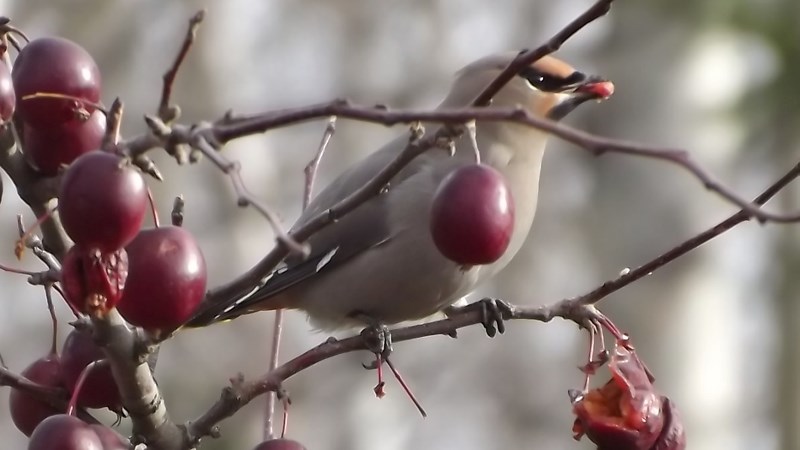Athabasca’s Christmas bird counters braved frigid temperatures Dec. 27 and witnessed both a decline in birds counted as well as their own number.
The Athabasca Christmas Bird Count took place in a 24-kilometre diameter area around Athabasca, with a total of 25 species and 1,912 individual birds accounted for, according to bird count co-ordinator Harvey Scott. That’s a decline from 35 species and 2,792 birds in 2016.
Scott said the decline could be partially attributed to both the cold weather and a decline in the number of bird counters. The group had 14 fewer counters this year compared to last year, who spent a total of 67.25 hours counting in 2017 compared to 137 hours in 2016.
“Over the years, we’ve lost some wonderful birders,” Scott said, noting several long-time counters have passed away. “We need both young and middle-aged people to come out and help us. We have some, but we need more.”
Wayne Brehaut, another co-ordinator of the bird count, said the bird numbers can fluctuate greatly year-by-year based on a number of factors, such as weather and the number of counters. He added this makes it hard for the group to pinpoint the overall health of the local population.
“There’s so many things that can change it just year by year,” Brehaut said. “Year by year, you can’t tell much.”
He added that the National Audubon Society, which co-compiles data from hundreds of Christmas bird counts across the western hemisphere, has algorithms to analyze data submitted by counters.
The count did have some new blood join in the endeavour. Penny McKigney, a first-time counter with the Athabasca Christmas Bird Count this year, said monitoring birds in the face of climate change is important to her.
“I find it very important to keep caught up with bird count and different species so we can see how global warming is affecting the birds,” McKigney said. “They are very important for our ecosystem and anything I can do to observe such amazing creatures and help keep track I am more honoured.”
Amateur bird counters are needed to help professionals get a more complete picture of the health of bird species around the world, Scott said.
“Despite the fact we have wonderful, professional ornithologists and field naturalists and so on, there’s a place and a need for amateurs and good, skilled amateurs to regularly monitor the health and numbers of the bird population,” Scott said.



